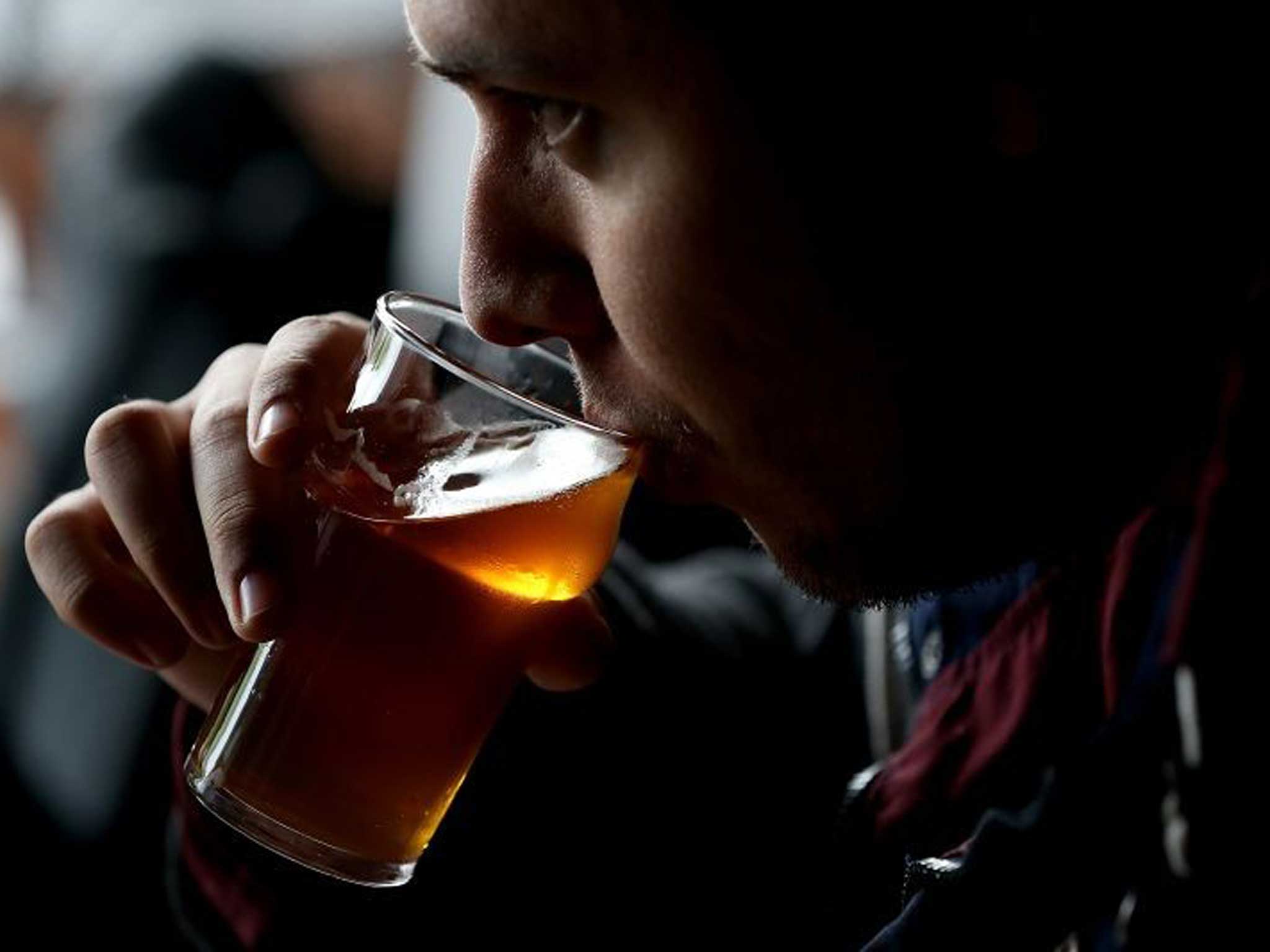Hangovers do not put off drinkers say scientists
The side effects of drinking including nausea and headaches do not deter drinkers from consuming alcohol again the same day, a study shows

Your support helps us to tell the story
From reproductive rights to climate change to Big Tech, The Independent is on the ground when the story is developing. Whether it's investigating the financials of Elon Musk's pro-Trump PAC or producing our latest documentary, 'The A Word', which shines a light on the American women fighting for reproductive rights, we know how important it is to parse out the facts from the messaging.
At such a critical moment in US history, we need reporters on the ground. Your donation allows us to keep sending journalists to speak to both sides of the story.
The Independent is trusted by Americans across the entire political spectrum. And unlike many other quality news outlets, we choose not to lock Americans out of our reporting and analysis with paywalls. We believe quality journalism should be available to everyone, paid for by those who can afford it.
Your support makes all the difference.A pounding headache, nausea and unrelenting dizziness are the unwelcome hangover symptoms familiar to many drinkers who had one drink too many.
But the effects of being hungover do not influence if or when a person will drink again, researchers have found.
The results to be published in the ‘Alcoholism: Clinical & Experimental Research’ journal by the team at the University of Missouri came from a study involving 386 young US adults, many of them university students.
For 21 days, participants who identified as regular drinkers, noted in a diary each morning whether they drank alcohol, if they were hungover, and if they expected to drink again that day.
This data offered 2,276 drinking episodes and 463 hangover episodes for the researchers to analyse.
Even when drinkers suffered great discomfort from drinking, the ratings given on hangover and non-hangover mornings did not significantly affect their intention to drink later that day.
Particpants only waited six hours longer to drink again if they were hungover, compared to those uneffected.
While past surveys of US University students have shown that half of drinkers continue drinking to relieve their symptoms, the study by the team at Missouri did not reflect this.
However, students were sometimes too hungover to complete diary entries and they were left blank, the researchers admitted.
Researcher Thomas Piasecki said: “Our findings fill in a basic piece of the puzzle concerning hangovers and alcoholism.
"If hangovers don't strongly discourage or punish drinking, links between current problem drinking and frequent hangover seem less incongruent.
"If hangovers don't generally hasten drinking, we can rule out a direct causal role of hangovers in the acceleration of problem drinking."
“Experiencing frequent hangovers is a warning sign that should probably prompt you to reflect upon your drinking, and to consider seeking help if you are having difficulty drinking within safe limits,” Piasecki added.
To improve results, future studies should investigate whether having a hangover reduces the number of drinks at the next drinking episode (rather than just the time until the next drink), the researchers said.
200,000 people in the UK go to work hungover each day, according to Alcohol Concern, while up to 17 million sick days are taken due to drinking.
Join our commenting forum
Join thought-provoking conversations, follow other Independent readers and see their replies
Comments